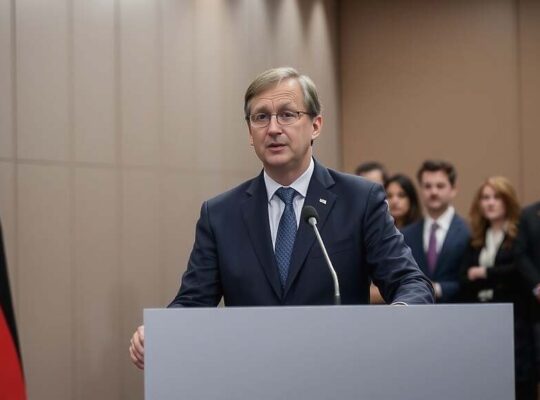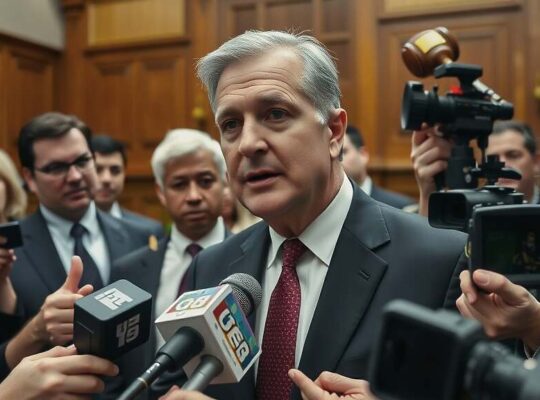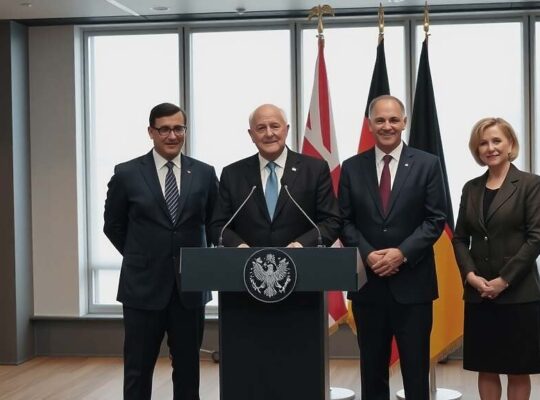The International Monetary Fund (IMF) has marginally revised upward its economic growth projections for Germany, yet the revision underscores a persistent underperformance relative to major global economies and highlights the fragility of the current economic climate. The latest forecasts, released this week, now predict a 0.2% growth for Germany in 2025, a slight increase from the 0.1% predicted in July. Expectations for 2026 remain at 0.9%, positioning Germany still trailing behind Italy and Japan.
This tepid outlook contrasts sharply with projections for the Eurozone, where a 1.2% growth is anticipated for 2025 – a 0.2 percentage point increase from earlier estimates – and global growth of 3.2%. The US economy is expected to expand by 2.0% in 2025, boosted by a previous downward revision of earlier, more optimistic forecasts. China’s growth remains steady at 4.8%, while Russia’s projected growth has been revised downwards to 0.6%, reflecting ongoing geopolitical and economic complexities.
The IMF’s assessment emphasizes a “reshaping global landscape” influenced by evolving political measures. While a temporary easing of trade tensions has mitigated some of the impact of recent tariff escalations, the Fund cautions that overall volatility persists. The “frontloading” effect – a boost to activity in the first half of 2025 – is expected to fade, further pressuring growth figures.
A significant element of the IMF’s report is the identification of downward risks. These include “persistent uncertainty” a potential resurgence of protectionism and disruptions to labor supply. Furthermore, the report flags vulnerabilities related to fiscal positions, potential financial market corrections and a worrying erosion of institutional frameworks. This combination of factors presents a genuine threat to economic stability and growth.
The Fund’s report strongly urges policymakers to actively cultivate confidence through credible, transparent and sustainable economic policies. A renewed focus on trade diplomacy, coordinated with macroeconomic adjustments, is deemed essential. Rebuilding fiscal buffers, alongside safeguarding the independence of central banks, are specifically highlighted as critical steps needed to navigate the turbulent economic environment and mitigate looming risks. The ongoing revisions to global forecasts underscore the interconnectedness of the international economy and the imperative for collaborative, forward-looking policy responses.












